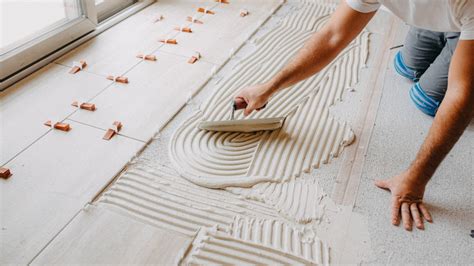
That persistent, irritating habit your spouse displays – the one that seems minor but consistently grates on your nerves – might be more than just an annoyance; it could be a significant predictor of future marital discord and even divorce, according to relationship experts. These seemingly insignificant behaviors can erode the foundation of a marriage over time, signaling deeper, unresolved issues.
Relationship professionals emphasize that these irritating habits are often symptomatic of underlying problems in communication, unmet needs, or differing values within the relationship. While every couple has their share of quirks and idiosyncrasies, the crucial factor is how these habits are addressed and managed. Ignoring or dismissing these persistent annoyances can lead to resentment and emotional distance, paving the way for more serious marital problems.
“It’s not the habits themselves that are the problem, but what they represent,” explains Dr. Sarah Thompson, a licensed marriage and family therapist. “Often, these habits trigger deeper feelings of being unappreciated, unheard, or disrespected. When these feelings accumulate, they can create a toxic environment in the relationship.”
One common example is the habit of leaving dirty dishes in the sink. On the surface, it may seem like a minor issue, but it can quickly escalate into a point of contention if one partner feels they are constantly cleaning up after the other. This can lead to feelings of inequality and resentment, fostering a sense of being a caretaker rather than an equal partner.
Another frequent source of irritation is the overuse of electronic devices, particularly smartphones. When one partner is constantly distracted by their phone, it can create a sense of emotional unavailability and neglect. This can lead to feelings of loneliness and isolation, especially if the other partner feels their attempts at connection are being consistently ignored.
According to a recent study published in the Journal of Marital and Family Therapy, couples who reported higher levels of irritation with their partner’s habits also reported lower levels of marital satisfaction. The study found a strong correlation between the frequency and intensity of these annoyances and the likelihood of considering separation or divorce.
“The key is to address these issues early on, before they become deeply ingrained patterns,” says Dr. Thompson. “Communication is essential. Couples need to be able to talk openly and honestly about their feelings without resorting to blame or criticism.”
Experts recommend several strategies for addressing annoying habits in a constructive way. These include:
- Active Listening: Truly listen to your partner’s perspective without interrupting or becoming defensive. Try to understand their feelings and needs.
- Empathy: Put yourself in your partner’s shoes and try to see the situation from their point of view. Acknowledge their feelings and validate their concerns.
- Compromise: Be willing to find solutions that work for both of you. This may involve making concessions or finding creative ways to address the issue.
- Setting Boundaries: Clearly communicate your boundaries and expectations. Let your partner know what behaviors are unacceptable and why.
- Seeking Professional Help: If you are struggling to resolve these issues on your own, consider seeking the guidance of a qualified therapist or counselor.
It’s important to remember that addressing annoying habits is not about changing your partner or controlling their behavior. Instead, it’s about fostering a deeper understanding and appreciation for each other’s needs and working together to create a more harmonious and fulfilling relationship.
The impact of these habits can extend beyond mere annoyance, seeping into other aspects of the relationship. Financial habits, for instance, can be a major source of conflict. Spending habits, saving discrepancies, or differing approaches to budgeting can lead to significant disagreements and resentment. One partner might feel controlled or that their financial security is threatened by the other’s behavior. These financial strains can then manifest in other areas, affecting intimacy and overall relationship satisfaction.
Household chores also frequently top the list of triggers. The division of labor, or the perceived lack thereof, can lead to feelings of unfairness and being overburdened. One partner may feel they are carrying the weight of household responsibilities, while the other is not contributing equally. This disparity can create a sense of resentment and undervaluation. Even seemingly small tasks, when neglected repeatedly, can become significant sources of irritation.
Social habits, too, can play a role. One partner might feel embarrassed or uncomfortable with the other’s behavior in social situations. This could range from talking too loudly to dominating conversations or engaging in behaviors that the other partner finds inappropriate. These social habits can create a sense of distance and undermine the couple’s ability to navigate social situations together harmoniously.
“Many couples find that the little things are the big things,” Dr. Thompson notes. “It’s often the accumulation of these seemingly insignificant habits that ultimately wear down the relationship.”
Furthermore, the way couples communicate about these habits is crucial. If conversations turn into accusatory exchanges or defensive arguments, the situation can quickly deteriorate. The tone, timing, and approach to addressing these issues are as important as the issues themselves. A constructive conversation focuses on expressing feelings and needs without blaming or criticizing the partner. Using “I” statements to express how the behavior makes you feel can be more effective than accusatory “you” statements.
For example, instead of saying, “You always leave your clothes on the floor,” a more constructive approach would be, “I feel frustrated when I see clothes on the floor because it makes the house feel cluttered, and I spend a lot of time trying to keep things tidy.” This approach focuses on the speaker’s feelings and needs, rather than attacking the partner’s character.
The cumulative effect of these nagging habits can also lead to a decline in intimacy. When couples are constantly irritated by each other, it can be difficult to maintain a sense of closeness and connection. The emotional distance that develops can then lead to a decrease in physical intimacy, further exacerbating the problem. The lack of intimacy can then fuel further resentment and dissatisfaction, creating a vicious cycle that is difficult to break.
In some cases, these annoying habits may be indicative of underlying mental health issues. For example, hoarding behaviors, excessive cleaning, or other compulsive behaviors can be signs of obsessive-compulsive disorder (OCD). Similarly, procrastination, disorganization, or impulsive spending can be associated with attention-deficit/hyperactivity disorder (ADHD). In these cases, seeking professional help for the underlying mental health issue may be necessary to address the annoying habit effectively.
It is also essential to recognize that some habits may be deeply ingrained patterns of behavior that are difficult to change. In these cases, acceptance and understanding may be more realistic goals than complete eradication. Learning to tolerate certain quirks and idiosyncrasies can be an important part of maintaining a healthy relationship. However, this does not mean that problematic behaviors should be ignored. Instead, it means finding ways to manage the impact of these behaviors and develop coping strategies.
Moreover, the context in which these habits occur can also influence their impact on the relationship. For example, a habit that is tolerable during periods of low stress may become more irritating during times of high stress. External factors, such as work pressures, financial difficulties, or family issues, can exacerbate the impact of these annoying habits. Recognizing the role of external stressors and finding ways to manage them can help to reduce the negative impact of these habits on the relationship.
“It’s all about perspective and empathy,” adds Dr. Thompson. “Can you understand why your partner does what they do, even if it annoys you? Can you find a way to laugh about it, or at least not let it ruin your day? These are the skills that build resilience in a marriage.”
Ultimately, addressing annoying habits in a relationship requires a proactive and collaborative approach. It involves open communication, empathy, compromise, and a willingness to seek professional help when needed. By addressing these issues early on and in a constructive manner, couples can prevent them from escalating into more serious problems and strengthen the foundation of their relationship. The goal is not to eliminate all sources of irritation, but to develop effective strategies for managing them and maintaining a healthy and fulfilling partnership.
The longer these habits persist without being addressed, the more difficult it becomes to resolve them. Over time, they can become deeply ingrained patterns of behavior that are resistant to change. The resentment and emotional distance that develop can also make it more challenging to communicate effectively and find solutions. Therefore, it is crucial to address these issues as soon as they arise, rather than waiting until they become major problems.
In some cases, the annoying habits may be a reflection of deeper, unresolved issues in the relationship. For example, a partner who constantly criticizes or belittles their spouse may be struggling with feelings of insecurity or inadequacy. A partner who is constantly late or disorganized may be struggling with issues of control or avoidance. In these cases, addressing the underlying issues may be necessary to resolve the annoying habits.
Couples therapy can be a valuable tool for addressing these deeper issues. A therapist can help couples to identify the root causes of their conflicts and develop more effective communication and problem-solving skills. Therapy can also provide a safe and supportive environment for couples to explore their feelings and work through their issues.
It is also important to recognize that not all annoying habits are created equal. Some habits may be relatively harmless, while others may be more damaging to the relationship. For example, a partner who occasionally forgets to take out the trash may be less problematic than a partner who is constantly verbally abusive. It is important to prioritize the issues that are most damaging to the relationship and focus on addressing those first.
Furthermore, the impact of annoying habits can vary depending on the individual personalities and sensitivities of the partners involved. What one partner finds mildly irritating, another partner may find completely intolerable. It is important to be mindful of your partner’s sensitivities and to avoid engaging in behaviors that you know will be particularly annoying to them.
In addition to addressing annoying habits, it is also important to focus on building positive aspects of the relationship. Strengthening the bond between partners can help to buffer the negative impact of annoying habits. This can involve spending quality time together, engaging in shared activities, expressing appreciation and affection, and practicing acts of kindness.
“Focus on the good stuff, too,” advises Dr. Thompson. “Remember why you fell in love with your partner in the first place. Nurture those positive feelings and memories. That can help you get through the rough patches.”
Moreover, it is crucial to maintain realistic expectations about relationships. No relationship is perfect, and all couples will experience conflicts and disagreements from time to time. The key is to develop effective strategies for managing these conflicts and maintaining a healthy and fulfilling partnership.
In conclusion, while seemingly minor, annoying habits can be significant indicators of underlying issues within a marriage. Addressing these habits proactively through open communication, empathy, and a willingness to compromise is essential for maintaining a healthy and fulfilling relationship. Ignoring these issues can lead to resentment, emotional distance, and ultimately, marital discord. By focusing on both addressing the problematic habits and strengthening the positive aspects of the relationship, couples can build a more resilient and satisfying partnership. Seeking professional help can provide valuable guidance and support in navigating these challenges.
Frequently Asked Questions (FAQ)
1. What types of marital behaviors are considered “annoying habits” that could signal potential problems?
Annoying habits can range from leaving dirty dishes in the sink and overuse of electronic devices to financial mismanagement, differing social habits, and unequal division of household chores. Essentially, any behavior that consistently irritates one partner and creates friction in the relationship can be considered an annoying habit. It’s not the specific habit itself but rather the underlying feelings of disrespect, being unappreciated, or unheard that it triggers, leading to deeper marital issues.
2. How can a couple distinguish between a harmless quirk and an annoying habit that could lead to more serious marital problems?
The key difference lies in the impact the behavior has on the relationship and the emotional well-being of the partners. A harmless quirk is generally accepted and does not cause significant distress or resentment. An annoying habit, however, creates repeated irritation and can lead to feelings of anger, frustration, and emotional distance. If a habit consistently causes conflict or makes one partner feel unappreciated or disrespected, it needs to be addressed. Frequency, intensity, and impact are crucial factors in determining whether a habit is harmless or potentially damaging.
3. What communication strategies are most effective for addressing annoying habits with a spouse without causing further conflict?
Effective communication involves active listening, empathy, and using “I” statements to express feelings and needs without blaming or criticizing the partner. For example, instead of saying “You always leave your clothes on the floor,” try saying “I feel frustrated when I see clothes on the floor because it makes the house feel cluttered.” It’s important to create a safe space for open and honest dialogue where both partners feel heard and understood. Avoid accusatory language and focus on finding collaborative solutions.
4. When should a couple consider seeking professional help or couples therapy to address annoying habits and underlying marital issues?
A couple should consider seeking professional help when they are unable to resolve their issues on their own, communication breakdowns are frequent, or the annoying habits are causing significant emotional distress or impacting the overall health of the relationship. If patterns of conflict are deeply ingrained, or if underlying issues such as mental health concerns or unresolved trauma are suspected, therapy can provide valuable tools and guidance. Seeking help earlier rather than later can prevent these issues from escalating.
5. What are some practical steps a couple can take to proactively prevent annoying habits from negatively impacting their relationship?
Proactive steps include establishing clear boundaries and expectations, practicing regular communication about needs and concerns, and prioritizing quality time together. Couples should also focus on expressing appreciation and affection, engaging in shared activities, and maintaining a sense of humor. Being mindful of each other’s sensitivities and avoiding behaviors that are known to be particularly irritating can also help. Regularly checking in with each other and addressing minor issues before they escalate into major problems is crucial for maintaining a healthy and fulfilling relationship. Furthermore, cultivate empathy; understanding why your partner behaves in a certain way, even if it’s annoying, can foster patience and tolerance. Remember why you chose to be with your partner in the first place and focus on the positive aspects of your relationship.









